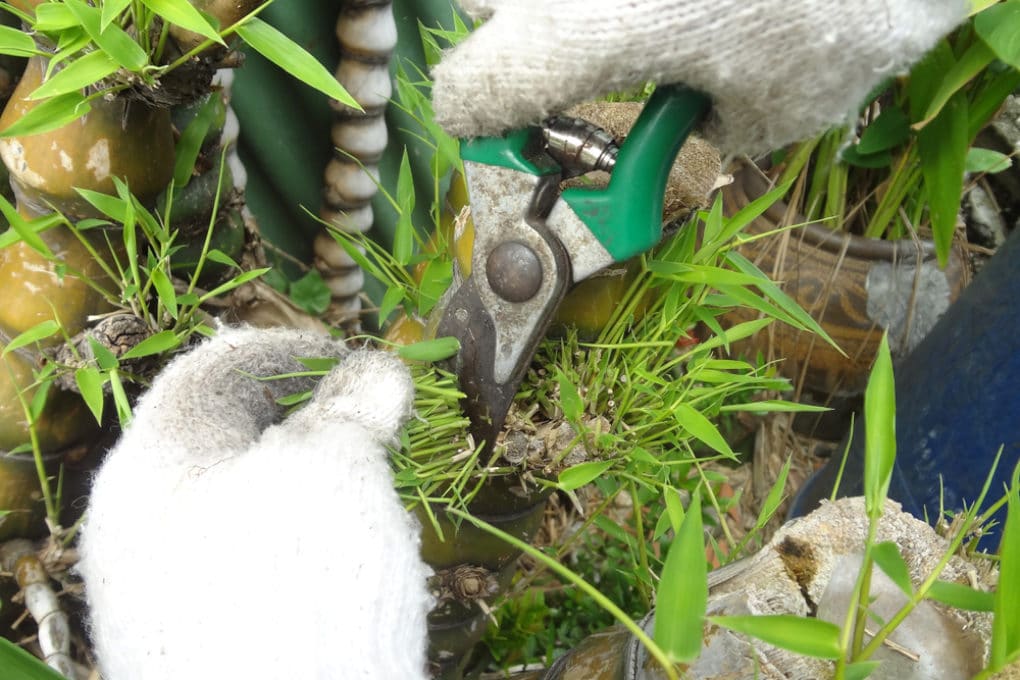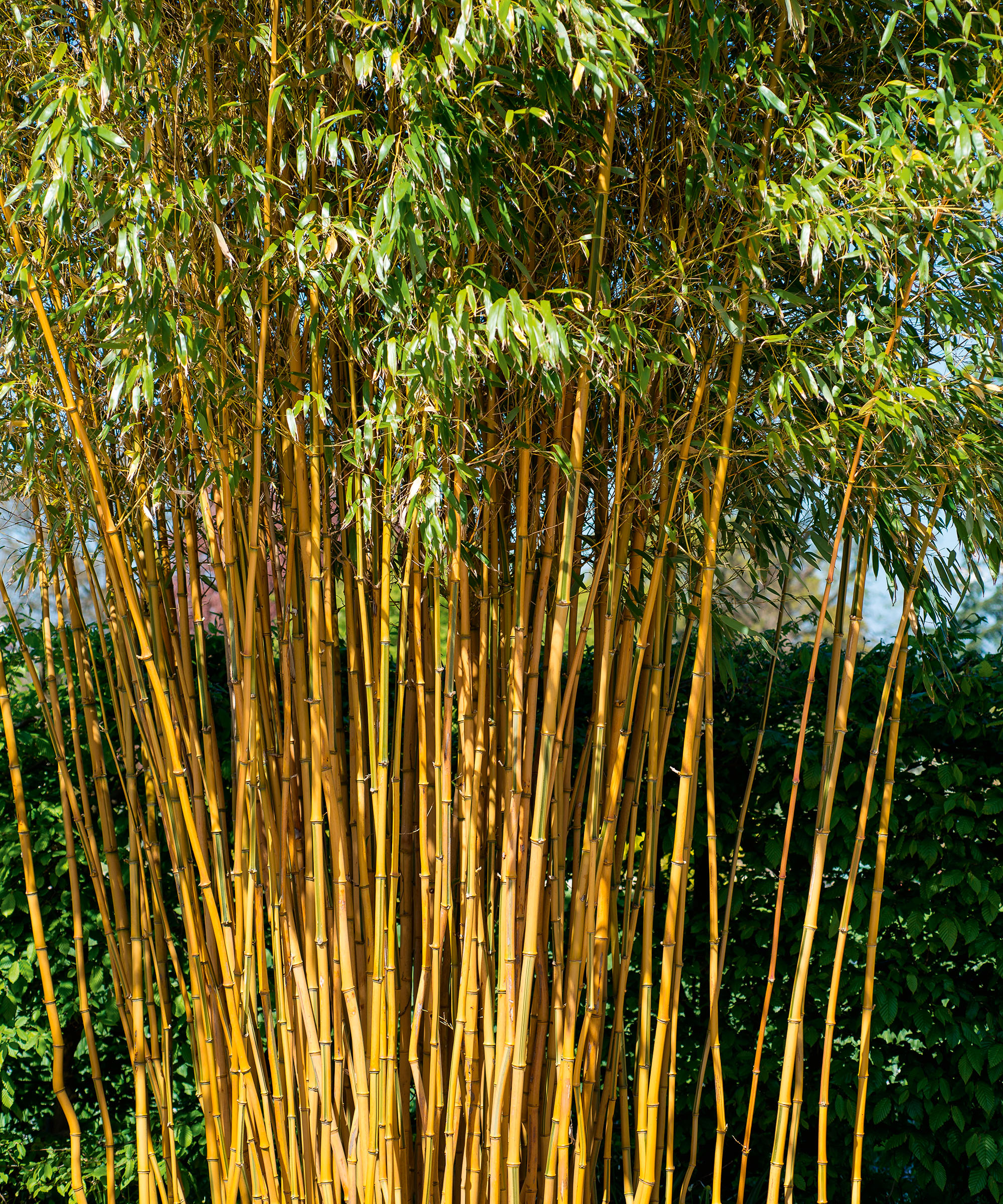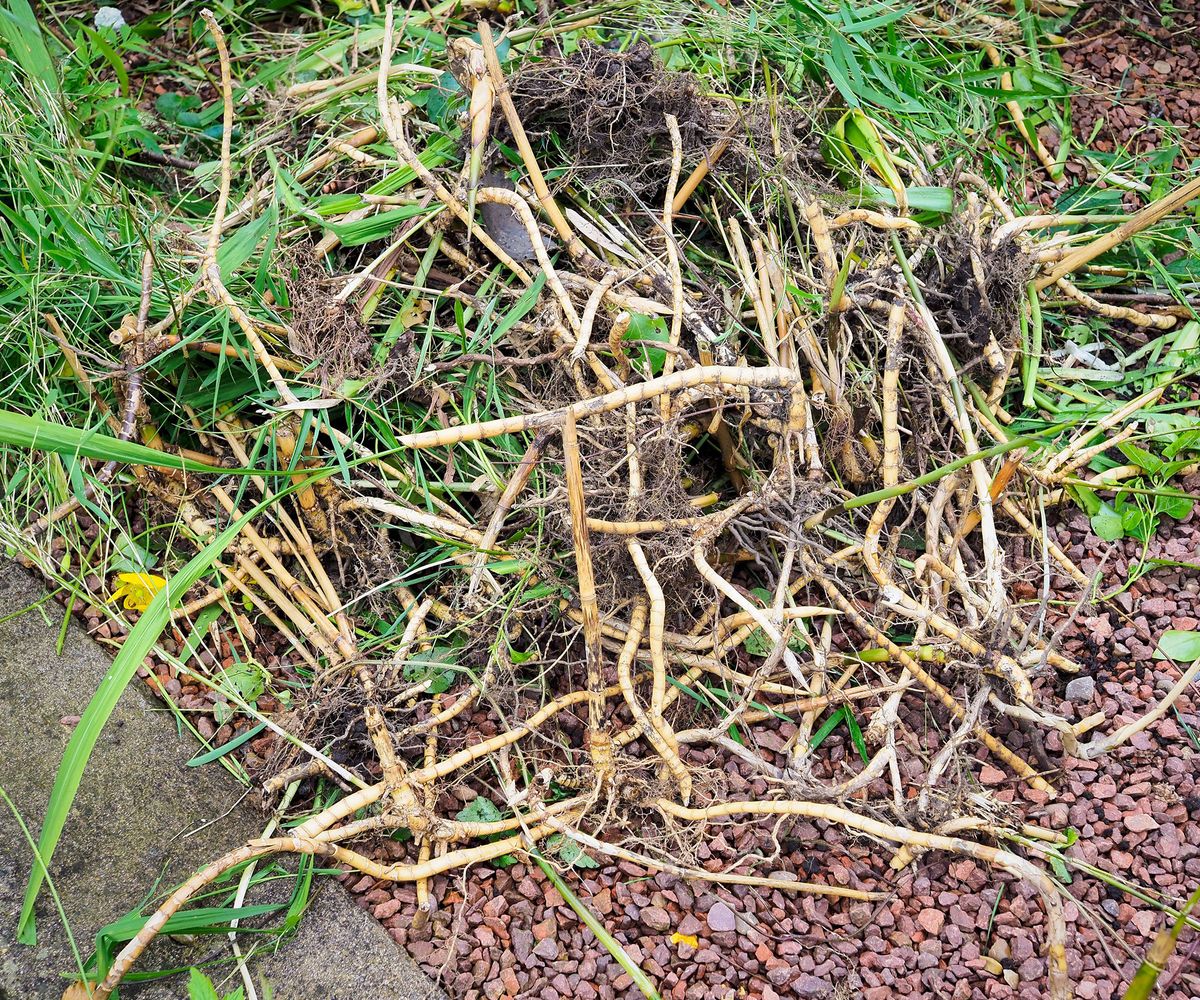How To Kill Bamboo Tree And Sp It From Spreading Homebuilding
Luckily, there are several simple and effective ways to kill bamboo. Installing a root barrier is a preventative measure to keep bamboo from spreading into unwanted areas of my yard. In this article, we’ll show you how to get rid of bamboo using chemical herbicides and natural diy solutions, as well as how to contain bamboo to prevent it from spreading in the first place.
How to kill bamboo and stop it from spreading Homebuilding
Put up a shield between your neighbor’s bamboo and yours. This takes time and diligence to prevent the bamboo from escaping the covered area. If your running bamboo extends onto the property of neighbors who have no interest in getting rid of their plants, you will
From using vinegar to killing rhizomes, there are so many different ways to kill bamboo.
Herbicides containing glyphosate can be used to kill bamboo almost effortlessly, but careful application and multiple treatments may be necessary. Eliminating bamboo plants is one of the toughest things you can do in the garden, but it can be done. With diligence and perseverance, you can control the bamboo spread and even kill bamboo plants that have invaded unwanted places. Keep reading to learn more about how to eliminate bamboo plants in your garden.
How do you remove bamboo from the garden? If you wish to poison the bamboo, then it is best applied to the freshly cut stumps or stubs of stems so it is quickly absorbed and circulated to the roots. If bamboo is invading your garden space or trespassing into your neighbour’s yard, you might be looking for effective ways to kill bamboo plants permanently. This guide provides a comprehensive overview of four proven techniques:

Dig rhizomes, pour boiling water, apply vinegar, and cut and burn.
When is the best season to kill bamboo plants? New culms grow between march and may, making spring the best time to kill bamboo. How much does professional bamboo removal cost? It depends on where you live and how much bamboo you need to remove, but on average, homeowners pay between $425 to $1,850 for bamboo removal.
However, if you do notice the plant growing back, repeat this method till all the roots are dead. An alternative to this method is to put just plain boiling hot water in the dug up trench instead of the vinegar solution, to kill the roots of the bamboo plant. Killing a bamboo plant takes a good amount of time, which can stretch beyond a year. 15 minutes to 1 hour per week total time:

2 hours to 8 hours per year skill level:
The roots and rhizomes of bamboo can be extensive, so even with repeated applications of a systemic weedkiller it can take several years to kill a bamboo, says the rhs article on bamboo control. Therefore it is only recommended that you use chemicals as a last resort, if the presence of bamboo in your garden poses a risk to biodiversity Glyphosate has very little residual soil activity and will only kill plants that receive direct contact. For glyphosate to be effective, the bamboo must be mowed or chopped and allowed to regrow until the new leaves expand.
What is the easiest way to kill bamboo? If you have bamboo growing where it is not wanted, there are two options for removing it: The 6 tips to kill bamboo 1. Bamboo is one of the hardiest plants out there.

For this reason, using herbicides alone isn’t often enough to kill the plant.
However, you can prevent it from regrowing after cutting with herbicides—if you spray the plant often enough. Sadly, this isn’t a silver bullet and doesn’t work all of the To effectively kill bamboo, it is necessary to address the root system through physical removal, herbicide application, or natural methods. Is it safe to use herbicides near other plants in my garden?
When using herbicides to kill bamboo, it is crucial to follow the instructions on the product label carefully. Kill bamboo with boiling water. This includes digging around the bamboo and exposing the roots so you can pour the hot water directly onto the source. Selective grass herbicides are also effective at killing bamboo roots, but could require more applications.

While other unconventional methods could kill bamboo roots as well, they tend to come with more risks to safety and the environment.
The biggest adversary for bamboo roots is perseverance. Some people love bamboo, but far more people loathe it. Then in about two weeks, they can't see themselves either. Bamboo comes up everywhere, until they cry in desperation to grumpy, how can we kill this damn bamboo?
Want to kill bamboo so it never comes back? Use this stump cut and treatment method using a tree killing herbicide. Learn how in my video! Make a fresh cut o
However, it also will kill other plants it comes in contact with, as well as damage the ecosystem.
Plus, it is toxic to humans and animals. These include cutting the bamboo stems and applying herbicides, digging out the rhizomes and roots, mowing the bamboo regularly, pouring boiling water or undiluted white vinegar onto the roots, or covering the bamboo with a tarp. It’s important to note that killing bamboo may require multiple treatments over a period of 2 to 3 years. Clumping and running bamboo essentially differ in their root growth pattern.
While running bamboo roots easily navigate their way through obstructions and take the road with the least resistance, clumping bamboo roots remain persistent in pushing through whatever’s in their way. Running bamboo is the invasive type. If bamboo as taken over a garden or yard, it can be killed by removing every bit of root. Find out why bamboo won't die if it is simply cut down with help fr
For bamboo plants that are particularly pesky, cut the canes as close to the ground as you can.
Then, pour one tablespoon of undiluted roundup® weed & grass killer super concentrate into the hollow Bamboo is a beautiful plant from asia. There, nature provides a balance of predators and disease that keep bamboo in check. However, here in the u.s.
Where it was presented for use as an ornamental plant, there isn’t a natural management system to contain it. Some varieties of bamboo are considered “invasive.” specifically, golden bamboo […] It is possible to control bamboo by digging sections of the plant out and reducing the size, however this is often difficult with very large, overgrown plants. Make sure you cut the underground stems (rhizomes) as you go, removing them with a digging fork.